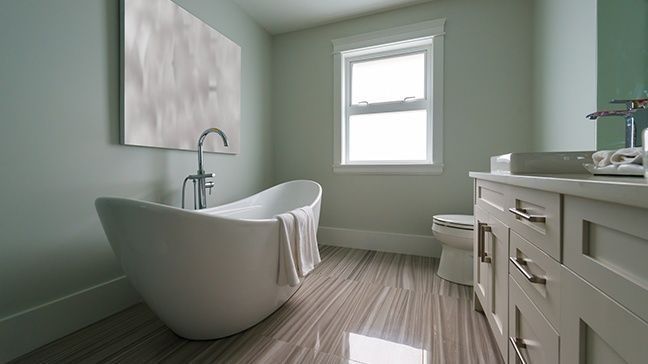You’ve probably heard of Airbnb. The rental service, which matches hosts with home or apartment vacancies to travelers looking for a place to stay, is popular worldwide. And often, hosts and guests have positive experiences.
But hosting on Airbnb involves more than collecting cash. Opening up your space to someone you don’t know comes with risks. Navigating the process of hosting legally and safely can be stressful, too. Although horror stories of theft and trashed property are the exception rather than the rule, you should still be careful. Should you go for it?
The Pros
You earn passive income
Hosts set their own prices. Without the responsibility of a landlord, you’ll earn rental money for a short-term or long-term stay. Make sure the price is reasonable for your area, the size of the space, and the length of time. Be flexible about pricing—in high-demand seasons like summer, for instance, you can charge more.
You can make friends and connections
Especially if you live in or near a destination city, you can meet people from around the world. Airbnb attracts both tourists and business travelers—a wide variety of global citizens you might not meet otherwise.
You have a house-sitter
If you’re traveling yourself and have plants or pets that need tending, or if you’d just prefer your home to be occupied while you’re gone, you can find an Airbnb guest who’s happy to help out.
The Cons
You’re renting to strangers
Airbnb has measures in place to vet the guests on the site and protect your safety. Still, even if you follow every guideline, you’ll sacrifice some privacy in your living space. You’ll have to trust your guest to be respectful of the neighbors and follow any rules that apply to residents.
You’re still responsible for maintenance issues
Even diligent dwellers bring wear and tear to living spaces. If you’re renting, landlords will hold you (not the guest) responsible for any serious damage. Airbnb does offer Host Protection insurance, but read the fine print—it may not cover everything.
You need to clean—the guests may not
You’ll be doing plenty of cleaning before the guests arrive to make the rental attractive. But guests have no such obligation. Though hosts can charge a security deposit in the case of property damage, they may still be stuck with a mess when the guests leave.
The Steps
Do your legal due diligence
Before you begin a profile, find out the regulations for Airbnb in your property and the area where you live. Check your lease for restrictions on subletting, if you rent. Even if Airbnb renters are allowed, it’s good to give your landlord a heads-up, and possibly your neighbors as well.
Know both state and local laws so you don’t get stuck with any fines. Local rules will vary widely. In New York City, for instance, you can’t legally sublet an apartment for less than thirty days if you’re not there. San Francisco allows ninety days. Airbnb’s info on responsible hosting—a must-read before you begin—links to regulations in several different cities. Find out if you’re subject to rental income taxes, as well.
Maximize your user profile and photos
The more information you give, the more likely you are to have a solid, trustworthy selection of guests to choose from. Make sure to disclose key info—room type, number of bedrooms and baths, any pets, and anything else you’d want to know if you were a renter yourself. Mention any amenities.
Photos should be clear and highlight your space’s best assets. NYC host Seth Porges recommends the (free!) Airbnb photography service, and advises putting pertinent info in the photo captions.
Be a good host
Clean sheets and towels are essential. Some hosts provide breakfast, leave wine or coffee, or otherwise make their guests feel at home. Be friendly. Err on the side of over-explaining. A written document left for the guest can describe area and neighborhood perks, as well as delineate in writing any guidelines you want them to follow.
Protect yourself
Listen to your gut, and decide your own comfort level. “If I don’t think I’d be comfortable having a particular person stay at my place, I simply don’t book them,” says Porges. Even if the guest has already arrived, you can issue them a refund. Don’t feel forced to host anyone.
Store your valuables in a safe place. Cash and jewelry aren’t covered under Airbnb’s Host Protection. And make sure the information you list online is 100 percent accurate—guests can ask for a refund if it’s not.
Summary
If you think you’d enjoy Airbnb hosting, remember it takes a little work. With added income and new acquaintances, however, the work just might pay off. Click here to host with airbnb.


